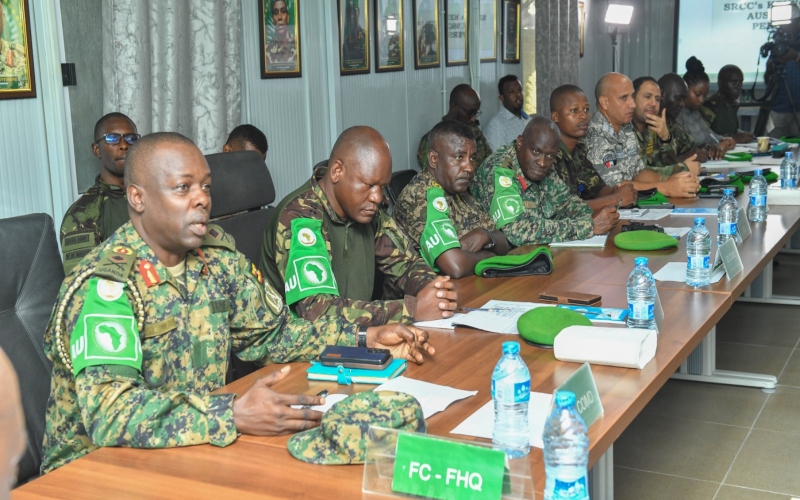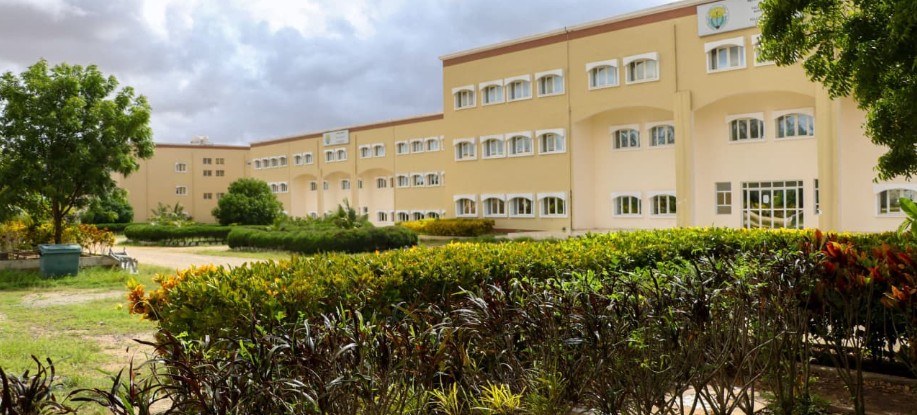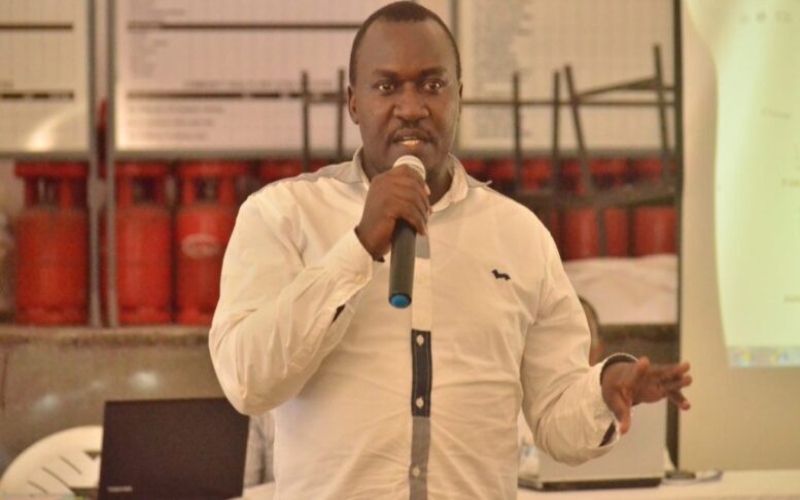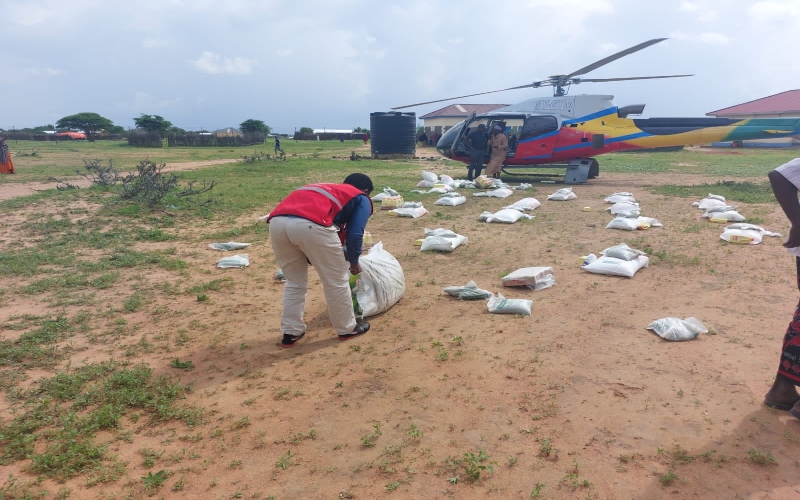Shakahola massacre: Paul Mackenzie, 38 others denied bond in child cruelty case
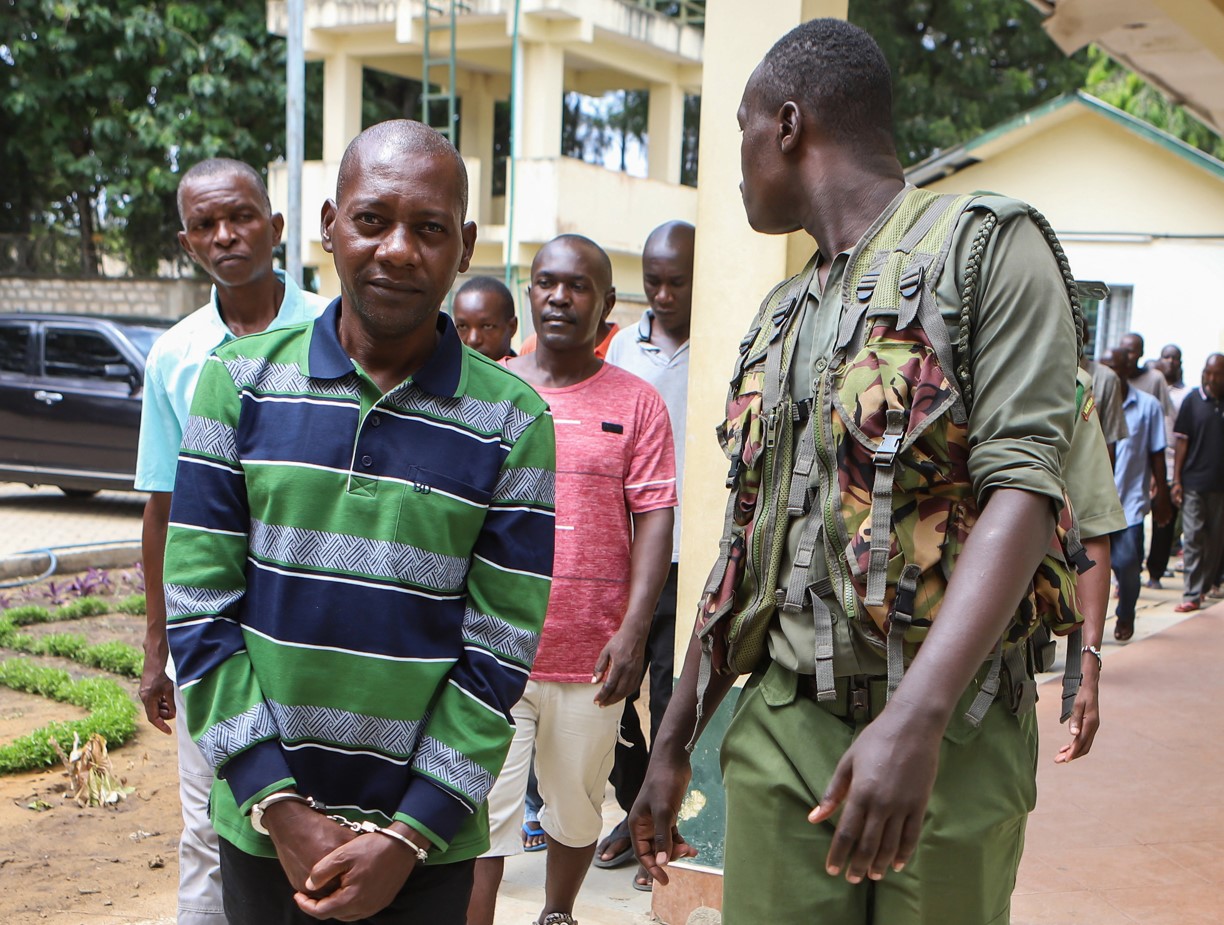
The case will, however, be expedited to prevent undue delays, Principal Magistrate Nelly Chepchirchir said.
Alleged cult leader Paul Mackenzie and 38 other suspects facing child torture and cruelty charges following the Shakahola massacre of at least 429 people, were on Thursday denied bond.
Principal Magistrate Nelly Chepchirchir, of the Tononoka Children’s Court in Mombasa County, noted, however, that the case will be expedited to prevent undue delays—a situation envisaged by Mackenzie's lawyer, Wycliffe Makasembo, who feared it could take as many as five years.
More To Read
- Shakahola trial: Former co-preacher reveals Mackenzie urged followers to shun society, await "direct ascent to heaven"
- Father recalls unimaginable pain after identifying missing daughter in Shakahola case
- Shakahola trial witness denies DNA evidence, insists missing children are alive
- DPP tables 88 postmortem reports in Paul Mackenzie murder trial
- Witness recounts how Paul Mackenzie’s teachings led her to quit career, reject medicine
- Shakahola witness tells court she hasn't used medicine for over 10 years as they are "satanic"
“Having considered the nature of offences that the accused persons are charged with and the need to safeguard the best interests of the children who are witnesses in this matter and whom the accused may have authority over, I find that these are compelling reasons to warrant all the accused persons being denied bond at this point,” Chepchirchir ruled on Thursday.
The accused were initially arraigned before the court on January 25, 2024, facing multiple charges. The first accused person, Mackenzie, faces a total of 17 main charges and two alternative ones.
Makasembo had made an oral bail application, which the prosecution opposed.
Subsequent hearings saw the prosecution present arguments supported by affidavits, highlighting a flight risk, the seriousness of the charges, the strength of the prosecution's case, the likelihood of witness interference, and the character of the first accused, a self-proclaimed pastor, as reasons for denying bond.
The defence countered these claims, labelling them mere suspicions without concrete evidence.
In her ruling, Chepchirchir emphasised the importance of considering the best interests of the child victims involved, as mandated by the Constitution and the Children’s Act.
“The real question that the court must keep in mind is whether or not the accused will be able to attend the trial. The imposition of bail terms, if necessary, must similarly be to ensure the attendance of the accused at the trial and ought not to be based solely on the sentence that the accused stands to serve if convicted," she said.
"It is therefore my view that the discretion to grant bail and determine the conditions rests with the court. In exercising its discretion, the court must strike a balance between protecting the liberty of the individual and safeguarding the proper administration of justice. As the fundamental consideration is the interests of justice, the court will lean in favour of liberty and grant bail where possible, provided the interests of justice will not be prejudiced by this."
Consequently, the magistrate scheduled a pre-trial case conference for April 23, 2024, with provisions for virtual attendance by the accused.
With the denial of bond, the accused will remain in custody as the legal proceedings progress, ensuring the protection of both the victims and the integrity of the case
Top Stories Today
